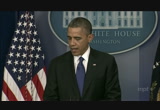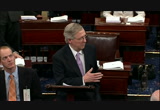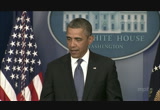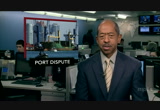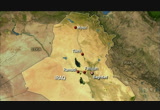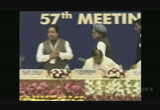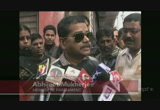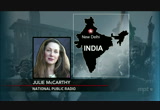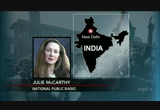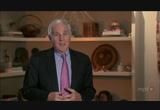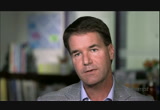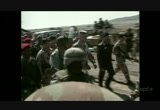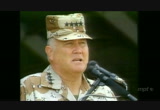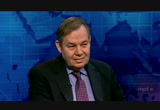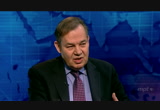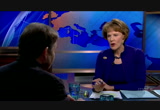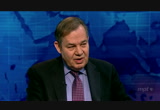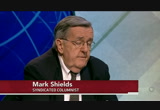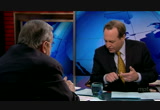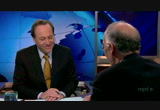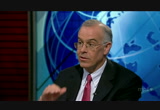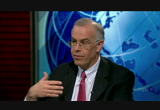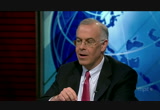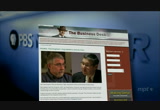tv Eyewitness News at 6 CBS December 28, 2012 6:00pm-7:00pm EST
6:00 pm
captioning sponsored by macneil/lehrer productions >> brown: president obama and congressional leaders met face to face for the first time in weeks, in a last-ditch effort to avert the fiscal cliff. good evening, i'm jeffrey brown. >> warner: and i'm margaret warner. on the "newshour" tonight, we have the latest on the chances for a breakthrough-- just four days before automatic tax hikes and spending cuts hit. >> brown: then, we turn to india. ray suarez looks at the violent protests and public anger sparked by the gang rape of a young woman. >> warner: john merrow has the story of a group of california charter schools that aim to be the model-ts of education. >> america has lots of terrific schools. people open great schools every year, but they typically open just one. nobody has figured out how to mass produce high quality, cost
6:01 pm
effective schools. >> brown: we remember general norman schwarzkopf-- the man who commanded american-led forces in the persian gulf war known as "desert storm." >> warner: plus, mark shields and david brooks analyze the week's news. >> brown: that's all ahead on tonight's "newshour." >> major funding for the pbs newshour has been provided by: >> support also comes from carnegie corporation of new york, a foundation created to do what andrew carnegie called "real and permanent good." celebrating 100 years of philanthropy at carnegie.org. >> and with the ongoing support of these institutions and foundations. and... >> this program was made possible by the corporation for public broadcasting. and by contributions to your pbs station from viewers like you. thank you.
6:02 pm
>> brown: the final weekend has now arrived before the fiscal cliff hits on new year's day and with it, more than $600 million in tax hikes and spending cuts. in a last bid for a deal, president obama stated his terms face-to-face to top republicans and democrats. >> congressional leaders arrive ted white house this afternoon for their first group meeting with the president since november 16th. vice president biden and treasury secretary timothy geithner also attend. but there was little to suggest the makings of an 11th hour bargain. a source familiar with the meeting told the newshour its president is sticking with his offer from last friday. it included keeping the bush era tax break force the middle class but raising tax rates on incomes over 250,000 dollars a year.
6:03 pm
president also wants to extend unemployment benefits for some 2 million americans who will lose them in the new year. and a proposal would delay any spending cuts. the president asked for an up or down vote on his plan unless there is a counter proposal that will pass both the house and senate. a little more than an hour after the meeting began several participants were seen leaving. >> and back at the capital the senate's democratic majority leader harry reid and republican minority leader mitch mcconnell offered their takes on the meeting. >> we had a good meeting down at the white house. we are engaged in discussions, the majority leader myself and the white house, in the hopes that we can come forward as early as sunday and have a recommendation that i can make to my conference and the majority leader can make to his conference. and so we'll be working hard to try to see if we can get there in the next 24 hours. and so i'm hopeful and
6:04 pm
optimistic. >> whatever we come up with is going to be imperfect. some people aren't going to like it. some people will like it less. but that's where we are. and i feel confident that we have an obligation to do the best we can and that was made very clear. >> brown: house speaker john boehner aides said if the senate passes a bill the house will take it up and either accept or amend it and a short time ago president obama appeared in the white house briefing room with a statement. here is some of what he said. >> we had a constructive meeting today. senators reids and mcconnell are discussing a potential agreement where we can get a bipartisan bill out of the senate over to the house and done in a timely fashion so that we met the december 31st deadline. but given how things have been working in this town we always have to wait and see until it actually happens. the one thing that the american people should not have to wait and see is some sort of action so if we
6:05 pm
don't see an agreement between the two leaders in the senate i expect a bill to go on the floor. and i've asked senator reid to do this put a bill on the floor that makes sure that taxes on middle-class families don't go up. that unemployment insurance is still available for 2 million people and that lays the groundwork then for additional deficit reduction and economic growth steps that we can take in the new year. >> all of this still developing. and we will have more on all of it with mark shields and david brooks later in the program. >> also ahead >> warner: also ahead, between now and then; protesting a gang rape in india; mass producing high quality education and remembering general norman schwarzkopf. but first, the other news of the day. here's kwame holman. >> holman: the u.s. economy has dodged a potentially crippling strike at ports up and down the east coast and gulf coast at least, for now. the longshoremen's union agreed today to extend its existing contract by another month.
6:06 pm
that word came after the union and shipping lines worked out a deal on royalty payments for unloading containers. the contract extension gives the two sides time to resolve their remaining issues. wall street finished the week with its fifth straight losing session. stocks have been falling as concern mounts that washington will fail to get a budget deal. the dow jones industrial average lost 158 points today, to close at 12,938. the nasdaq fell 25 points to close at 2,960. for the week, both the dow and the nasdaq fell 2%. sectarian tensions flared across iraq today as tens of thousands of sunnis staged mass protests against the shi-ite-led government. there were rallies in fallujah and ramadi, where protests already had erupted earlier this week. today, mosul, tikrit and samarra had demonstrations as well. protesters took to the streets waving flags and signs. they chanted slogans demanding
6:07 pm
fair treatment from the baghdad regime, and the release of sunni prisoners. shi-ite prime minister nouri al-maliki said the demonstrations were not acceptable. the government of china imposed tighter controls on internet usage today. now, china's 500 million web users will have to provide their real names when they register for internet service. and providers must delete any web content deemed illegal, and report it to authorities. leading writers and bloggers insisted it's a new way for china's communist leaders to censor their critics. >> ( translated ): since the internet came into china, the chinese government has been repeatedly imposing restrictive measures, such as shielding, blocking and banning. it has even spent billions of dollars to build a firewall against overseas sites. they just don't want to see any freedom of speech which is provided by the constitution because it will hurt their vested interest. >> holman: the new curbs come in the wake of a series of online discussions that have helped expose corruption scandals. russian president vladimir putin
6:08 pm
signed a bill into law today banning americans from adopting russian children. the move terminated more than 50 adoptions that already were underway. the measure came in reaction to a u.s. sanctions law targeting russians accused of human rights abuses. former president george h.w. bush was said to be alert and improving today. a family spokesman said he's even singing with doctors and nurses. mr. bush is 88 years old. he's been hospitalized in houston with complications from bronchitis. this week he was placed in intensive care, but in an e-mail yesterday, his chief of staff said the former president wants people to put the harps back in the closet. those are some of the day's major stories. now, back to margaret. >> warner: the victim of a horrific gang rape in india died tonight at a hospital in singapore. the attack enraged much of the country, and the reaction caught the government off-guard. ray suarez has more.
6:09 pm
>> suarez: the fury across india has been building for nearly two weeks, since a 23-year-old medical student was gang-raped and then thrown from this bus in new delhi. sexual assaults are rife in india, especially in new delhi, where, on average, there's a rape reported every 18 hours. but this time, the extreme brutality of the crime ignited outrage that turned violent with street battles between protesters and police. the protests have continued this week amid growing accusations that police and other officials are dismissive of sex crimes. >> it is completely sad on the part of the government actually since they are doing nothing about the innumerable rape incidents which are happening around us. >> suarez: in response, prime minister manmohan singh announced yesterday the creation of new committees to improve women's safety and expedite assault trials. today he reiterated his government's commitment to
6:10 pm
justice. >> suarez: six suspects have been arrested in connection with the gang-rape. and last week, india's home minister said the government is moving toward applying the death penalty in such cases. but other indian officials have triggered new anger by their public comments. yesterday abhijeet mukherejee a lawmaker and son of india's president, dismissed the protesters as women with too much makeup and dark purposes. >> ( translated ): i believe there must be some hidden agenda of some political party. so many people and students have turned up that it is hard to believe the non-involvement of any political party. the protests that have taken place in delhi and the magnitude shows that there are hidden motives of political parties in this matter and the government
6:11 pm
should look into that angle. >> suarez: mukherejee's comments drew a fierce backlash and he apologized for them today. meanwhile, another tragedy, mourners gathered yesterday in punjab state for the funeral of a 17-year old girl who reported being gang-raped in november. she killed herself wednesday after saying she'd been humiliated by police. and yesterday the government said it would begin a directory of people convicted of sexual crimes. earlier i spoke with npr south asia correspondent julie mccarthy, who's reporting this story from delhi. jns julie there are tens of thousands of rapes in end yabs, there are 40,000 rape cases currently-- currently in the courts. why has this case caught the national imagination? >> wbltion i think what cause the imagination of the people was this horrendous attack on this young woman that is 23-year-old girl who was-- who is at the heart of this upheaval in india. after the shock subsided there was anger and it poured out into the streets.
6:12 pm
so you had a very graphic symbol around which people rallied. and the protests in many ways were spontaneous. they were driven by the it revolution that is india. social media played a huge role in assembling people, getting out the message, what were they doing, where were they doing it. and prot testers were demanding sus 'tis for this young woman who they said was gang raped on a moving bus that passed through police check pointses that assault was taking place. so there was dismay of the police who had long been criticized on their infectioniveness on handling violent crimes against women, of violent crimes period. >> suarez: the police came down hard on the protestors did that have the effect of bringing more people to the cause? >> on the second day where they had shut down indiagate which is the central city landmark of india, that happened on a sunday, it did have the effect of creating a cat and mouse, a game between the police. the protestors were
6:13 pm
extremely angry for example that no one from the government had come out to address them on the saturday when they had been tear gassed and water canonned as they approached the president's residence. sos there a sense of a government that was tone deaf and wasn't hearing the people. and that just made them more enraged. so in many ways it was an invitation for them to come back. so yes, the crackdown not only angered people but i think generated a lot of heat, that said on sunday which were the especially violent, especially violent protests, the numbers were a lot fewer. >> suarez: well, you talk about tone deaf politicians have the nation's leaders heard the protestors now. are they responding in a different way? >> well they're trying. the government has responded with what many governments often respond to in crisis management situation commissions and inquiry
6:14 pm
emotions are running very high and the call for capital punishment is an expression of the public outrage and you hear that a lot. and the government is said to be considering that. now of course the critics say, well, look this is not what's not needed here is greater punishment. but what is needed is better investigative and prosecutorial ca pace that is what will help the problem. but while there was this need, you know for policing reforms and better forensic and more efficient criminal justice system, the contours of the debate ray are coming down this to this. how do we change attitudes toward women. i mean indian women complain about a mentality that springs are from centuries of tradition. of defining women as objects and being subject ated. and young men say the women are achb seen as the repository of the family honor. so if the women is the victim of a sexual assault oftentimes she sown as having been dishonored the
6:15 pm
family rather than the r5i7ist who has dishonored her. so a huge shoift in attitude is what many think is called for. but back to the government yes t was caught flat-footed no question about it. for example the home minister insisted that he wasn't obligated to talk to any demonstrated and ended up equating them to maoist rebels. so that that was a comparison that really enraged a lot of people. >> suarez: during this same week the victim of another notorious rape committed suicide. has that just added fuel to the fire? >> all the while this furor was erupting over the gang rape in delhi details emerged of this harrowing case in the punjab where a 17-year-old girl committed suicide. she was reported to have been diswrought about being gang raped during the volley this year the hindu festival of light and being harassed by police who also refused to register her
6:16 pm
case. so again, more of these cases are coming out and i suppose they're hitting the headlines harder because of the-- because the-- because the country is in a recessive mood to see them. you know h this is a venting. these demonstrations are a venting that springs from something very deep. a deep vein of frustration about violence against women generally. and about the impunity for the perpetrators, the vast majority of rapes that are reported do not result in conviction. and those conviction rates have declined delayed on decade. >> suarez: npr's julie mccarthy thanks so much for being with us. >> thank you, ray. for more on all of this we turn to miranda kennedy who lived in india from 2002 to 2007 as a reporter. she's the author of "sideways on a scooter: life and love in india..." which looks at the lives of women in that country.
6:17 pm
>> suarez: miranda, as we've been discussing sexual violence against women in india is wide spread everything from being grouped in a public place to the kind of horrific gang rapes that have made the news. what do the women that you talk to in your reporting over the year make of their own predictment? well i think the sense of powerlessness on women in india is something that goes across cast and religion t is widespread. there is frustration about it. as julie said there is a deep vein of frustration in the country. and i think that is what we are seeing this this one case has sparked off you know, this citizen's protest didn't come out of nowhere. it's not a new issue. there have been sexual violence against women in india for many many decades. but i think the sense ever a new feeling of kind of liberation about being able to take to the streets and say something about it is why we are seeing so much action right now. >> when a woman overcomes her own misgivings, pressure
6:18 pm
from her own family, and actually goes to the police what happens? are the accusations investigated? are the accused tried? >> well this is one of the bigger problems ray. because first of all it has to be said that the vast majority of the rapes are not reported in india as all over the world. but especially in india because it is a huge that would. there is a cultural no-no against it. it can ruin your life if are you raped will you not get married. you could be thrown out of your village. so that is the most important thing. but if you do have the get up to go to the police as most of these women that have been discussed tonight did, you could be humiliated as the younger woman was the woman who committed suicide earlier this week. she was humiliated and often they are humiliated sexually. and the police station t is completely unacceptable. and then the police will not push it through. and the second big herdle that women face is they if
6:19 pm
they do dare to come forward is the judicial process. you know india's judicial process is notoriously slow for everything including rapes but everything else. so if here the outside would be, you know, a year but most cases are gone through in a few months. in india you're talking several years so why would you do that. why would you ruin your life if nothing is going to happen. >> all the nations of south asia have had female prime ministers, all have female cabinet secretaries. they've had female party leaders potential governors. how come they haven't taken up the cause of the wide spread and-- widely understood cruelty against women in their country? >> well all elected governments are-- their hands are always tied by the social morees and cultural constriction of that country their own country and india is a thriving democracy but
6:20 pm
it is also very conservative. and there are many traditions which would prevent those kibsd of things that from happening. so i think it's great that we have female leaders right now the head of the governing party in india is a woman but that doesn't mean that she can make her only issue that of women's issues. if the rest of the government isn't going to follow along india's government is very constricted in many ways from what it can do. so unfortunately this hasn't been made a big case, a big issue of yet so far but i actually think that this could be the time. i think that this case could give an opening. >> well, news from singapore of the young woman's death after the gang rape broke during the middle of the night in the india. so indians in their millions will awake to the news that the woman has died. have we crossed a threshold. is this an issue that simply can't be put back in the bottle and forgotten? >> well you know i think that probably when it comes
6:21 pm
to the street protest the death, the tragic death of this woman is going through means the protest will peak today and it's possible that after that the protests will dribble off and you know this case may be forgotten. this woman's name may stop being the top of the news. but i think that this case is a watershed moment. i think it can be a watershed moment. there are many other cases in india of other social issues where civic protests have lead to big change. and the amount, i mean we had delhi shut down. central delhi was shut down. tens of thousands of protestors all over india have been taking to the streets. there is real furry. and a kind of coming together about this issue. and so i'm hopeful we will have more than just commissions of inquirery as julie mentioned. i'm hopeful that we're going have some major change. >> miranda kennedy thanks for joining us. >> thanks, ray.
6:22 pm
>> brown: now, we look to a california education experiment called the "rocketship" model that involves teachers, kids and parents and aims to expand to serve a million students someday. the "newshour's" special correspondent for education, john merrow, has our report. >> reporter: the model-t was the first. the first innovative and affordable car available to the masses. others had built good cars, but henry ford figured out how to build a lot of them. he and his moving assembly line proved that quality can be mass produced. mass production is a problem the auto industry solved over 100 years ago, but it's an issue our education system has yet to figure out. america has lots of terrific schools. people open great schools every year, but they typically open just one. nobody has figured out how to mass produce high quality, cost effective schools.
6:23 pm
john danner is the latest to give it a shot. he created an innovative charter school model with replication in mind. charter schools receive public funding but are privately managed and operate outside of the traditional public system. >> our public education system's not really setup for change. >> reporter: before going into education, danner founded and ran a successful silicon valley startup. he designed his new education model after teaching for three years in a traditional public school. >> causing change within that system's really, really difficult. i think that's actually what charter schools were created to do was to shake things up, do things differently. >> good morning, rocketeers. >> reporter: rocketship's seven schools are among the top performing low income schools in california.
6:24 pm
once open, they operate entirely with public funding. the rocketship model has a few key parts that make it work. the first happens every morning during something called launch. >> launch is a really powerful experience for us. getting all of those kids, all the teachers, everyone in the community, parents included, in that same spot, doing some things together, it's meaningful. >> reporter: adam nadeau is principal of rocketships mosaic elementary school in san jose california. he says it all starts with high expectations. >> we're trying to get kids at or above grade level build the academic skills, but also build the character skills. >> reporter: each school serves about 600 students, kindergarten through fifth grade. >> they're low income, they're immigrants, they're-- often with
6:25 pm
parents working multiple jobs. if you think about the lives of the families-- and the children that are coming to this school, they have every possible strike against them. >> reporter: parents are encouraged to participate in launch because they are a critical part of the model. >> it's just amazing how the community comes together and just cheering for our school like if we were cheering for our favorite football team. >> reporter: but launch is about more than team spirit. >> they encourage you to come in and help out in the classroom to see how your child is getting educated. >> getting families in there is really challenging, but it's really important. if they're going to know what a high quality classroom looks like, they've got to see it. >> reporter: the hope is that after students graduate from rocketship and move on to middle school, their parents will advocate for high quality instruction there.
6:26 pm
the next part of the model is about recruiting and supporting teachers. 75% of rocketship teachers come from teach for america. about half have less than two years of classroom experience. all teachers get professional development. >> i have someone in my classroom almost every single day, sometimes every other day, giving me feedback and just holding me accountable to high quality instruction. >> reporter: another part of the model, teachers do not belong to a union. >> we do have an at-will employment contract or non- contract, i guess. >> reporter: could you be fired tomorrow? >> well i don't think they ever would. i'm valuable to this school. i produce good results with kids. and so they would have no reason. >> reporter: if the unions came to you and said, "john, we'd like to unionize rocketship?" what would you say? >> i would say absolutely not-- we're a startup. you know, in startups you basically do something different every day.
6:27 pm
any major school district has a 450-page kind of contract that literally says minute by minute what teachers are supposed to do. so the fit between how that's evolved and what rocketship is like is just-- a bad fit. >> reporter: no union, is that a problem? >> i'm making more money than i made when i was part of a union. i have more job security than i would say then when i was part of a union. so i'm not sure what i would need a union for. >> reporter: with no union contract, rocketship can decide what to pay teachers. andrew elliott-chandler is the principal of rocketship si se puede elementary. >> i was excited to offer some of our third-year teachers doing well almost $70,000 this year. >> reporter: that's almost 30% higher than a third year teacher earns in a neighboring district. rocketship teachers typically make at least 15% more, thanks to this part of the model. it's the linchpin that makes danners financial model tick: the learning lab. every school has a room like
6:28 pm
this: lots of computers and kids, but no classroom teachers. >> reporter: learning labs are staffed with hourly employees called individualized learning specialists who lack teaching credentials. >> i have five classes that i coach, so that's probably about 150 students. >> reporter: for about one hour every day, students practice math and literacy skills. they work independently at their own pace. the computer is able to track and guide the progress of each student. it's something educators call differentiated learning. some students work on basic skills while others advance to more challenging lessons. the learning lab allows a school to hire six fewer teachers, which rocketship says results in savings of up to half a million dollars. that money is used to pay teachers higher salaries, fund academic deans who help teachers get better, and train principals
6:29 pm
for future rocketship schools. but one thing the savings are not used for: art and music classes. >> i wish we could have art and music in the school but at the same time if you want your child to have that in their life you can make the effort to try and get it after school or on the weekends. >> reporter: the learning lab saves schools a lot of money, but there's just one problem: they're not really working. >> there's definitely an aspect of us kind of not knowing enough about what's going on in learning lab to be able to use that in our classrooms. >> we don't yet get data that says, "okay, teach this differently tomorrow because of what happened here." and that is... that is a frustration point. >> reporter: a problem we saw is that some students in the lab do not appear to be engaged. they sit at their computers for long periods of time, seemingly just guessing. >> that's definitely not the ideal situation. the ideal situation would be that they'd get help from somebody in the learning lab who would explain the concept to them then they would go back and practice it.
6:30 pm
>> reporter: rocketship says its about to make a big change to their model. >> if i had to guess, i'd say you come back in a year, you won't see a learning lab. >> next year we're... we're thinking of bringing the computers back to the classrooms-- and the kids back to the classrooms. >> reporter: what this new model might look like and how it may affect the schools bottom line but the leaders are not worried. >> reporter: what this new model might look like and how it may affect the schools bottom line is unknown. but the leaders are not worried. >> innovation, i think, is one of the most exciting reasons to be at rocketship. it's exhausting. but it's also exhilarating. things change dramatically every year. >> if you want to try some things and you can prove that they work nobody tells you not to do it in... in... in the charter world. >> reporter: new orleans nashville, indianapolis and memphis have all approved charters for rocketship schools to be built in their cities. next year, two new schools will open in san jose and one in milwaukee. danner plans to have 46 schools up and running in five years
6:31 pm
with a vision of someday serving 50 cities and a million students. if he succeeds, rocketship could become the model-t of education. >> warner: next, the life and legacy of the man credited with victory in the first iraq war. norman schwarzkopf was already a highly decorated army general, but a virtual unknown to most americans, when the first gulf war propelled him to fame. the war was triggered by iraqi president saddam hussein and his invasion of kuwait in august of 1990. schwarzkopf commanded the coalition that drove the iraqis out, and earned him the nickname "stormin' norman" for his military success, for his reputed temper and for his no- nonsense image at televised briefings.
6:32 pm
>> let me put it this way: it's going to take as long as it takes for the iraqis to get out of kuwait and the united nations resolutions to be enforced. >> warner: born in trenton, new jersey, schwarzkopf graduated from west point in 1956. he served two tours in vietnam, earning three silver stars for valor-- one for saving troops from a minefield. he also earned a purple heart and a raft of other medals. schwarzkopf stuck it out in the army through the lean, post- vietnam years, rising through the ranks. in 1988, he took over the u.s. central command responsible for the middle east. so it fell to him to command "operation desert storm" which opened in january 1991 with six weeks of allied bombings against the iraqi army. a few weeks into the air campaign, he spoke to "newshour" correspondent charlayne hunter- gault from his headquarters in riyadh, saudi arabia. >> saddam hussein is not a military man. he thought of this war in
6:33 pm
tactical terms, okay, at the lowest level. he never thought of it in strategic terms and what is happening all of a sudden he is finding that he taking a terrible licking strategically and he has no capability to react to that. i don't think we are close to breaking saddam's will. i don't think that is breakable. but i certainly we have the capability of breaking the will of his military and i think that we are making progress in that area from all the reports that we get. >> warner: three weeks later u.s. forces led the powerful ground offensive that routed the iraqis from kuwait in 100 hours. schwarzkopf said later he agreed with president george h.w. bush's decision to stop the war then, rather than drive to baghdad. days after the ground offensive ended, the allied commander met with defeated iraqi generals to discuss the terms for a cease fire. >> i would say very candidly that the iraqis came to discuss and to cooperate with a positive attitude.
6:34 pm
>> warner: later, schwarzkopf was criticized for letting saddam's military retain the right to fly helicopters, which it used to attack rebellious shi-ites and kurds. but in the immediate flush of victory, the general received a hero's welcome back in the u.s., including a standing ovation during a joint session of congress in may 1991. that summer, he retired from active service. >> i've got to tell you, no matter now eloquent the orator, no matter how prolific the poet no matter how lyrical the songwriter, no words can ever capture the emotions that go through a person's heart when he stands for the last time and hears the national anthem and salutes the american flag representing the county that he has gladly, proudly, served for the last 35 years.
6:35 pm
>> warner: schwarzkopf never pursued political office himself, but he did campaign for president george w. bush. and, he initially endorsed the decision to invade iraq in 2003, but later, criticized the pentagon's war planning. mostly, though, schwarzkopf devoted his time to serving as a board member and spokesman for charitable causes, living quietly in tampa, florida, where he died yesterday at the age of 78. in a statement, the first president bush, now ailing himself, called his gulf war commander "a true american patriot and one of the great military leaders of his generation." for more on general schwarzkopf and his legacy, we are joined by "new york times" reporter michael gordon. he co-authored the book, "the generals' war: the inside story of the conflict in the gulf." michael, welcome. take us back first of all to the gulf war more than two
6:36 pm
decades ago. what was it about general schwarzkopf and what he did is that made him be regarded at least by many as a hero. >> well, this is the time in which the american military did not have the confidence of the american public the way it does now. whatever people think of the wars in afghanistan or iraq they generally believe that the military has done its part. and that wasn't the case then. so we had an all-volunteer force. is there were a lot of weapons that had not really been tried in combat like the stealth fighter not really in operational circumstances. and they were being put to the test. and there was also the hang over from vietnam, the vietnam syndrome when people wondered could we since vietnam was certainly not a victory, could the american military really succeed in a major conflict abroad? >> warner: so really how hard was strategy, how much did he contribute to the strategy and execution? >> it was a massive
6:37 pm
undertaking and i covered it. i think a lot of people don't, even now it was really daunting. the united states had more than 500,000 troops in the region. and we had 66,000 in afghanistan now. we had allies like syria egypt, britain, france you had to hold together this coalition which was an usual coalition, so to speak. the administration jim baker got u.n. sanction for this operation. and it was just we had no headquarters in the region. right now the central command has a headquarters in qatar. there was fog like that. the arab states didn't really want the americans there and on a permanent basis. so we had, all of this had to be moved first to saudi arabia not region first from the defensive operation and then in an offensive operation. so just months and months for this to even just to prepare for this. >> and he was in charge of that.
6:38 pm
but now he was as we lewded to in the piece also criticized for making some strategic mistakes. what were those? >> well, there were well two goals primary goal its one was to evict the iraqi forces from kuwait which was done in the 100 hour ground war after six weeks of bombing, remember that. but the other one was to destroy saddam hussein's offensive powers primarily his republican guard force. because the thinking was if you didn't destroy them they could always come back to invade kuwait again plus there was a subtext they were hoping to weaken saddam's hold on power by getting at the most capable and loyal forces on his command. we did the first we didn't fully dot second. at the end of the day a significant number of the republican guard forces managed to escape. and this became, they were unenvironment-- instrumental in putting down the shi'a rebellion in iraq wants was that his fault based on miss assessment or bad
6:39 pm
strategy on his part or was it just the way the war unfolded and ended so quickly. >> it was a complicated series of circumstances. but first there was a lot of pressure from washington from the white house, from the pentagon and the war at a hundred year fossa void the fear piling on. second washington really didn't have an accurate picture of what was happening on the battlefront. there was a lot of confusion in the and neither really did schwarzkopf. he didn't know where all the moving pieces were at the time. he thought he new but in retrospect the situation not as much had been achieved as he thought. so those were two factors that i think contributed to this decision toned the war at 100 hours which was quite controversial among a lot of officers in the fight at the time because they thought it was a day or two too soon. >> now what about schwarcz come he said later oh i agreed with the decision. but was that his recommendation or a decision a political especially a geo political decision made in washington. >> it was a decision made in
6:40 pm
washington that he acquiesced. he was challenged by his deputy commander call waller who uttered an expletive and the general said you go argue, and but he signed off on it. >> warner: so who is schwarzkopf leggee and thing will eve the gulf war in terms of the wait u.s. wages war today or the wait military operates? >> well, it was a validation of the all-volunteer military. it showed that a lot of the weapons really do work. >> warner: some of thins credible precision weapons. >> precision wednesday m-1 tanks covering great distance, the strement fighter, cruise mills, all of that. they worked better than i think a lot of people thought they might work. so it ri stored a lot of the the confidence of the military. the united states accomplished one of its primary on jifkts at minimal cost. there were less than 150 killed in action americans or people without died of their wounds. so that was all for the good. but the war termination was very messy. the eye raiks were allowed to fly helicopters.
6:41 pm
that was actually the mistake schwarzkopf made in the cease-fire talks. they say we just need to get around the bridges that were destroyed but then used the helicopters to attack shi'a. saddam clung on to power thor than president bush thought he would the first president bush. and so the war the second war that happened in 2003 was a war of choice not a war of necessity. but it was a messy way in which the first war ended that presented the united states with that choice. >> warner: michael gordon "new york times," thank you. >> thank you. >> brown: and that brings us to the analysis of shields and brooks: syndicated columnist mark shields and "new york times" columnist david brooks. >> brown: developing fiscal cliff, walking short time ago the president came out of the meeting with congressional leaders and said he was modestly optimistic. are you? >> no no i think everyone
6:42 pm
is trying to look busy so when we go over he can say we tried. he came back from hawaii, he had to do something. so they had a meeting. if you don't have new offers you don't have progress. you did have a frank exchange but they in in the business of macking a deal there is no real evidence that they moved. so i remain that we will probely go oferm then once that happens then all sort of things start a lining. speaker boehner gets reelect as speaker t is easier to pass a tax cut than do it beforehand. everyone goes crazy outside so there is more pressure. so i still think it's much more likely that not much has happened. >> what do you think? looking busy that's all that is happening right now? >> i think that it was a chance, on january 3rd he has the votes from the republican congress land there is no reason to think doesn't, then will be re-elected to peaker of the house. but if 17 republicans and we
6:43 pm
know there are more than that number of rebels iconoclasts in that esteemed body o decide to not vote then john boehner will leave it in limb above. but i think once he is re-elected as speaker on the 3rd of january w a new congress, first of all there are more democrats in congress, both in the house and senate. and in a strange way speaker boehner's position is strengthened internally but he has to face a terrible moment of truth. and that is now they're pushing the senate to act first. and if the senate passes anything, it comes to the house and the likelihood of what comes out of the senate, or even in way of agreement is something that will not get a majority of republican republican-- republicans. >> brown: you go you are jumping to next week. the meeting today i'm looking at the wire story and hear words like constructive, positive hopeful, optimistic. >> yes constructive and positive. and with mitch mcconnell and according to the president
6:44 pm
in his statement mitchman connell republican leader and harry reid the majority leader. and have been so incredibly productive and coop rattive and collegial that it is probably-- they'll probably have it before ten minutes. i think there is a good chance. >> woodruff: we could start the champagne early. but the reality 500 million in tax cuts and spending cuts and tax increases on the negative side impact on this in g-- i think they will. >> the action is all in the senate, is that shall did --. >> i don't know why that is that is what people have decide. one of the things that struck me and i think mark too about the president's press conference if he saying oh these politicians in washington, they're squabbling. i should write a letter to the white house and find out who is in charge. it happens to be you mr. president, you are sort of involved here. so to me if i have to talk about the flaws of each side the president still is sort of oh those politician should figure it occupant. the republicans have a
6:45 pm
larger problem a freudian problem wa, do republicans want. it's been unclear for a month what their message is what their goal is they are sort of without defining a general strategy. they've been cast being this way and that doing the stupid things like plan b and they are still in that problem. they still didn't know what they want to use this moment for. at least the president wants to pass the tax increase on the upper-class. >> the president does have the political advantage. he has the card political cards. the republicans have put themselves in a position of seeing as trit butte of the deserving or undeserving rich. that essentially comes down to the point they don't want taxes raised on the richest 1% one half of 1% one/150 of 1% it is a terrible position for them to be in. but if some agreement is not reached early in january then i don't-- i think that the political tactical advantage that the president has and the democrats have will be lost if the economy starts to go south on us.
6:46 pm
because it will lead inevitly to a loss of public confidence in the sector. >> but every friday you guys sit here and talk about the political calculations of our leaders. you know they did that all the way through the campaign. you're suggesting that if i ask you what is the political calculation of the president right now or the republican, you sound like you're saying you don't know or they didn't know or -- >> i think obama knows. >> he knows. he looks at the next four years an thinks what do i want to do. i want to do some economic stuff. i want to do climate change stuff, immigration, but i can't do that if we're going have a budget showdown every six months. so i need to crush them with this and guts out of the showdown era. and that's why they put so much emphasis the white house has on getting rid of the debt ceiling of having at least the two year agreement we won't do this because he needs to get us out of the show doner ar is
6:47 pm
and crushing means even in we go over the cliff. >> they need to get beyond 9 show downera. now i should say i don't think it's fiscally sensible what they are doing but politically i understand what they are trying to do. the republicans ind understand. >> david rogers a very confidence professional reporter, congressional reporter now political from "the wall street journal," it is a simp el question here that is everybody in washington how brilliant he was and the thing he did in order to pass the 13th amendment to the constitution. and david roger pointed it ought to be instead of lincoln it should be grant that you've got it figure out a way as grant did that defeated troops can leave with their horse and mules so that they can go home. and david used the word crush and i think i heard that were democrats as well. i think you've got to figure
6:48 pm
figure out. you have to have a partner for the next four years at least to some degree on an ad hoc basis not that the republicans are all going to be collegial by to crush and humid-- hum il yate, i think would be a mistake. >> when i was saying that i was trying to simplify what their strategy was. i totally agree. you have to give people a chance to get to yes. and i have to say that i do think the only concession made since the election was boehner essentially saying we'll at least give you 800 billion-- probably go up on the rate. and i don't think the democrats did enough to draw him out on that maybe his caucus wasn't there yet and they will get there in general but i don't think there was enough saying get you this, give you this in exchange for that the president apparently at one meeting said you get nothing than that. you have to go further. >> it might be easier for john boehner if he it pass the senate. and it comes to the house and sigh look, this is the
6:49 pm
only train to dodge. >> is the only train just about the tax rates or hikes or a grander deal. >> i think it is, the president is right the extension unemployment and i think it will be the tax rates. but i think there's going to be enough matters left as well. but i think there will be enough matters left that it will force them. and that's why you want to have at least a minimum of goodwill. it will force them to have to deal with the larger issues still remainingment and they're considerable. >> you think so? >> those will still be out there. >> there still the general debt problem. still the crushing deficit is so they still have to do some big things let alone optimism gration reform and other stuff. it's a little like tarp remember the house voted no then the markets just could lapsd. i think we might see something like that in the first week in january and then a focus.
6:50 pm
but they will still be with cooperation. >> we have already seen an emotion of public confidence and a slowdown of economic activity. so i mean it's like this has already built in. i agree with david that the tarp analogy is a valid one but i think tarp was so dramatic and immediate. this is almost going to slow change. it is like it's built in. >> havinging what imact-- impact on the public wince think a loss of consumer certainty consumer confidence and comes back to not to sound like good government 101 but come back to the fact confidence in the public sector. you want to do something bim gration about climate change. in order to do that, there has to be a public reservoir of public confidence that we can act effectively. the government can be an instrument of change for the better. if the government can't even keep government open i don't
6:51 pm
see how you say we can do transformation. >> and even speaking strictly economic terms liftsing the top rate from 36 to 39, whatever it is going to be is bad. it's not good for economics. but the arm of doing that is mines cool compared to the harm of the country using-- and so even if are you sort of person bo doesn't really like tax increases i think you have to weigh these two. >> this is a depressing conversation, thank you. >> before we end let me ask you thoughts about general norman schwarzkopf. >> i thought the interview with michael gordon was good. he's far more knowledgeable on the subject. but two items. one chance to reconstruct the period from 1945 to 1991. there was an emotion of public confidence in the united states military. there was a yearning an american emotion for another
6:52 pm
douglas mccarr they are, whatever george marshal. and what happened was he filled that in 1991. it was a brilliant success militarily. and what he did i thought, and i think of it right now was this rush about the going to war. he was constantly the hero. it takes courage to be one of those men that goes into combat. and i always thought that was to me in many respects is an epitaph, a remind ter isn't the general, though remarkable he might be t is actually the person who puts his or her life on the line. >> he was one of the -- desh became the sort of celebrity general. >> yeah, and i generally don't like that you can sort of define generals into the theatrical cat gorx mcarthur
6:53 pm
patsons or non bradley mar shachlt i tend to like the nontheatrical better. i recall once in the '90s i was in egypt and i was supposed to-- i was being driven by a cabdriver in cairo he didn't speak english but he turned to me and said schwarzkopf. and he really 4r06d the guy. for that, it helped. people like that. >> in fairness to him, he did earn -- >> he wasn't just 10,000 yards offshore. he knew -- >> we can't talk about him without talking about president george bush. we say well, happy new year to him and happy new year to you guys. >> mark and david keep up the talk on the doubleheader reported in our newsroom, that will be posted on-line
6:54 pm
>> warner: again, the major developments of the day: senate leaders announced last- minute fiscal cliff talks after meeting with president obama. the president said he's modestly optimistic, but he warned, "the hour for immediate action is here..." dock workers on the east coast and gulf coast postponed a potentially crippling strike. and retired army general norman schwarzkopf passed away at the age of 78. he commanded the coalition victory over iraq, in the first gulf war. online, we look back at what 2012 meant for the health care reform law and what lies ahead in 2013. kwame holman tells us more. >> holman: ray suarez talks with jay hancock of kaiser health news about the year in health care and what changes in coverage can be expected next year. that's on our health page. on making sense, liberal economist and columnist paul krugman has a mea culpa moment, admitting to a mistake he made. and our own paul solman admits to a few as well as we come to the end of 2012. and you can look back at some of the most striking and oddest
6:55 pm
images captured by photojournalists this year. all that and more is on our web site newshour.pbs.org. margaret? >> warner: and that's the "newshour" for tonight. on monday, we'll highlight the stories from the past year that are likely to make the history books i'm margaret warner. >> brown: and i'm jeffrey brown. "washington week" can be seen later this evening on most pbs stations. we'll see you online and again here monday evening. have a nice weekend. thank you and good night. >> major funding for the pbs newshour has been provided by: ♪ ♪ ♪ moving our economy for 160 years. bnsf, the engine that connects us.
6:56 pm
>> and by the bill and melinda gates foundation. dedicated to the idea that all people deserve the chance to live a healthy, productive life. >> and with the ongoing support of these institutions and foundations. and... >> this program was made possible by the corporation for public broadcasting. and by contributions to your pbs station from viewers like you. thank you. captioning sponsored by macneil/lehrer productions captioned by media access group at wgbh access.wgbh.org
255 Views
IN COLLECTIONS
WJZ (CBS) Television Archive
Television Archive  Television Archive News Search Service
Television Archive News Search Service 
Uploaded by TV Archive on

 Live Music Archive
Live Music Archive Librivox Free Audio
Librivox Free Audio Metropolitan Museum
Metropolitan Museum Cleveland Museum of Art
Cleveland Museum of Art Internet Arcade
Internet Arcade Console Living Room
Console Living Room Open Library
Open Library American Libraries
American Libraries TV News
TV News Understanding 9/11
Understanding 9/11


